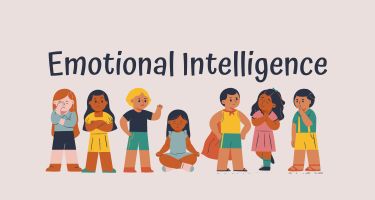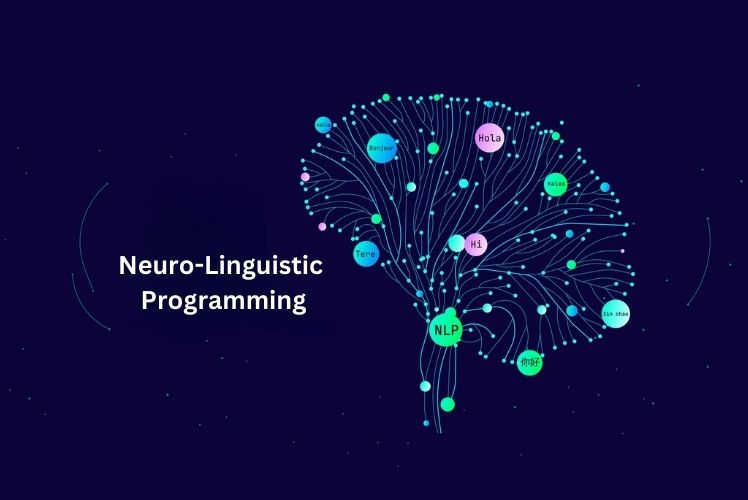Artificial intelligence is becoming a vital part of various industries, and mental health care is no exception. As we explore the potential of machines in this field, we find that while machines can analyse emotional data, they do not truly understand human emotions like we do. This creates a unique opportunity and challenge for mental health practitioners as they incorporate AI tools into their practices.
By leveraging AI, we can enhance the support offered to those struggling with mental health issues. AI-powered tools like chatbots and analytics can provide insights and aid in measuring emotional states. However, we must also navigate the ethical implications and privacy concerns that arise from using technology in such a sensitive area.
As we look to the future, the collaboration between AI and mental health care presents both exciting possibilities and essential responsibilities. We must balance innovation with the need to maintain a human touch in emotional support.
Key Takeaways
- AI can assist in understanding emotional data but lacks genuine emotional comprehension.
- Incorporating AI tools in mental health care can enhance support for individuals.
- Ethical considerations are crucial when using AI to address mental health issues.
The Intersection of AI and Mental Health Care
As we explore the relationship between AI and mental health care, we uncover significant advancements. These developments shape how we diagnose conditions and enhance traditional therapy. We are beginning to see the potential for AI to better understand emotions and improve patient outcomes.
Advancements in AI Technology
Recent advancements in AI technology have transformed mental health care. Machine learning algorithms, capable of analysing vast amounts of data, allow us to identify patterns that may not be visible to the human eye.
For example, natural language processing enables AI to analyse conversations and extract emotional nuances. This helps clinicians gain deeper insights into a patient's mental state. Additionally, AI tools are increasingly being designed to assist in symptom tracking, giving us a clearer understanding of mental health conditions over time.
AI Systems in Diagnosing Mental Health
AI systems are playing a pivotal role in the diagnostics of mental health disorders. By using predictive analytics, these systems can assess risk factors and identify potential mental health issues early on.
Studies indicate that AI tools can analyse data from various sources, such as social media and questionnaires, to enhance diagnostic accuracy. Furthermore, AI has the capability to monitor ongoing mental health conditions. This real-time data can help us adjust treatments and interventions quickly, improving overall patient care.
Role of AI in Traditional Therapy
In traditional therapy settings, AI is becoming an important support tool. We can integrate AI systems into therapy sessions to provide insights that enhance the therapeutic relationship.
For example, AI-driven applications can assist in homework assignments and skill-building exercises. They can also help patients practice techniques learned during sessions. This technology empowers clients to take an active role in their mental health journey, ensuring that they have access to resources between sessions.
AI's support may help therapists by providing data that aids decision-making. Overall, these applications enhance the effectiveness of traditional therapy while maintaining the human touch that is essential in mental health care.
Understanding Emotions Through AI
As we explore how AI systems can understand emotions, we find that several key techniques play a vital role. These include natural language processing (NLP), sentiment analysis, and the recognition of facial expressions and tone of voice. Each method contributes uniquely to developing emotional AI, enabling machines to grasp human feelings more accurately.
Natural Language Processing (NLP) and Sentiment Analysis
Natural language processing is crucial for AI to understand human language. By analysing text, we can identify emotions through algorithms that assess word choices, syntax, and context. These tools help in determining the sentiment behind messages, whether positive, negative, or neutral.
Sentiment analysis takes this further by quantifying emotions expressed in written content. For instance, a customer review can reveal not just satisfaction or dissatisfaction but also shades of emotion such as frustration or excitement. This insight allows businesses to respond better, enhancing customer experience.
Facial Expression and Tone of Voice Recognition
Recognising facial expressions is essential for AI to interpret emotions visually. By using cameras and deep learning models, AI can analyse key features of a person's face, such as smiles, frowns, and raised eyebrows. These cues provide immediate context about a person's emotional state.
Tone of voice also plays a significant role. AI systems equipped with audio analysis can detect variations in pitch, volume, and speed. For example, a shaky voice might indicate nervousness or fear, while a steady tone could signify calmness. Combining these elements helps create a richer understanding of emotions.
The Concept of Emotional AI
Emotional AI, also known as affective computing, refers to the ability of machines to recognise and respond to human emotions. This technology blends insights from NLP, facial recognition, and voice analysis to create more empathetic interactions.
With emotional AI, we can develop systems that adapt to our feelings. For instance, a mental health app using these techniques might provide tailored support based on the user’s emotional state. This progress could significantly enhance mental health care, making AI a more effective partner in our emotional journeys.
Improving Mental Health Support with AI
We can significantly enhance mental health support through the integration of artificial intelligence in various areas. This technology provides effective emotional support, assists in creating personalised treatment plans, and offers first-level support via health chatbots.
AI in Providing Emotional Support
AI can play a crucial role in offering emotional support by analysing user interactions and understanding their emotional states. Advanced algorithms can assess tones in messages and responses, enabling the system to deliver responses that feel empathetic.
Additionally, AI tools can track changes in behaviour over time. This helps us glean insights into a person's emotional well-being. By providing timely support, AI can bridge gaps in traditional mental health care.
AI-Driven Personalised Treatment Plans
Personalisation is key in effective mental health treatment. AI can analyse a patient’s history, preferences, and response patterns to develop tailored treatment plans. This ensures that each individual receives care according to their specific needs.
For instance, machine learning models can identify which therapies yield the best outcomes for different personality types. By matching the right approach to the right patient, we can increase the effectiveness of interventions while also minimising trial and error.
Health Chatbots as First-Level Support
Health chatbots serve as an accessible first point of contact for individuals seeking help. These AI-driven tools can answer questions and assess the urgency of a user's needs.
Chatbots can provide instant access to resources and support, helping users find immediate relief. In many cases, they can guide users through basic coping strategies, thus easing the burden on mental health professionals. With their scalable nature, chatbots make mental health support more widely available.
Ethical and Privacy Considerations in Emotional AI
As we explore the role of emotional AI in mental health, we must consider the important issues of data privacy, ethical concerns, and the need for maintaining empathy. These elements are crucial to ensure that AI applications respect individuals' rights while providing effective support.
Data Privacy and User Consent
Data privacy is a major concern when using emotional AI. These systems often collect sensitive information about users’ mental health and emotions. We must ensure that robust measures are in place to protect this data from unauthorised access or breaches.
User consent is equally vital. Users should clearly understand what data is collected and how it will be used. Transparency in these processes can build trust. We need to implement strict guidelines that require explicit consent before gathering personal information.
Ethical Concerns in AI Deployment
Deploying emotional AI in mental health care raises several ethical issues. One major concern is the potential for bias in AI algorithms. If AI learns from biased data, it may produce outcomes that are unfair or harmful.
Additionally, we must consider how AI affects the therapeutic relationship. Technology should never replace the human connection that is crucial in mental health care. We must establish ethical frameworks that prioritise patient welfare and prevent misuse of AI in emotional contexts.
Maintaining Empathy and Human Touch
Empathy is a cornerstone of effective mental health support. While AI can provide valuable insights, it lacks the emotional nuance that a human caregiver offers. We must ensure that technology complements, rather than replaces, human interaction.
In our approach to emotional AI, it is important to develop systems that enhance human connections. This includes training AI to recognise emotional cues while ensuring it does not undermine the essential empathy required in therapy. Balancing innovation with genuine human care will be key to our success.
The Future of AI in Mental Health
As we explore the future of AI in mental health, it is crucial to understand how emotional data analysis, the intersection of neuroscience and computer science, and the implications for physical health will shape our approach. These areas highlight the potential for machines to process emotional cues and enhance our understanding of mental well-being.
Emerging Trends in Emotional Data Analysis
We see significant advancements in machine learning algorithms that analyse emotional data. These technologies can recognise patterns in human emotions through facial expressions, voice modulation, and text analysis. By employing deep learning techniques, AI can interpret emotional cues with increasing accuracy.
For instance, AI tools can assess large datasets from social media or surveys to detect shifts in mental health trends. This can lead to early intervention strategies for conditions like depression and anxiety. Importantly, the integration of emotional data in therapy models allows us to personalise treatment plans tailored to individual needs.
The Role of Neuroscience and Computer Science
The fusion of neuroscience and computer science is vital to developing AI systems that comprehend emotions. Neuroscientific research provides insights into how the brain processes feelings, while computer science applies this knowledge to create more effective algorithms.
Using brain imaging techniques, we can identify how specific neural pathways are activated by emotional stimuli. By integrating this information, we can train AI to predict emotional states and reactions. This enhances the reliability of AI tools used in therapeutic settings, making them a more engaging part of our mental health arsenal.
Long-Term Impact on Physical Health
AI's influence on mental health may also extend to physical health. There is growing evidence that mental and physical health are interconnected. Using AI technologies, we can monitor the relationship between our emotional states and physical conditions.
For example, wearable devices equipped with AI can track our stress levels and provide real-time feedback. This promotes healthier lifestyle choices and aids in managing stress-related physical ailments. By addressing emotional health through AI, we may improve our overall well-being and reduce healthcare costs in the long run.





















